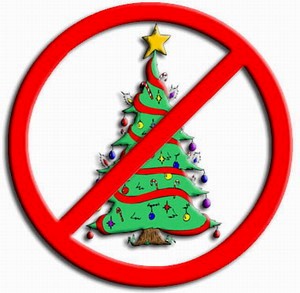The Christians (& Liberals?) who HATED Christmas: When Britain banned Christmas – Cromwell, the Puritans and the Liberals
(:E-:N-:R-AZ:C-30:V)
[While researching Christmas being banned I spotted something really interesting. I discovered that Christmas really was banned in Britain. But its interesting when this happened. It happened during the time of Oliver Cromwell, who was sponsored by the Liberals to seize Britain and who ended up executing the King of England. It turns out that there were “Puritan” Christians like in the USA and they did not like Christmas either.
Parliament won the war against the King. Apparently the King had always resisted the banning of Christmas. But when parliament was in control they banned Christmas. Though the People in Britain still celebrated it secretly. There was a government order to send Police on to the streets on Christmas day to catch and fine people who might be buying food for illegally celebrating Christmas. According to the law, businesses were all supposed to remain open on 25th December which I’m sure the Liberals would have liked!
I can’t help wondering whether the Liberals played some kind of role in the banning of Christmas or whether it was just a purely Christian puritan thing?
I say this because of the power of the Liberals who were behind Cromwell. Later, when the new King took over, he restored the celebration of Christmas! So it seems to me the English Kings were quite content to keep their people happy! Jan]
In the Live Science article it says:
The original war on Christmas was waged during the sixteenth and seventeenth century by Puritans, or Protestant Christians who believed that people needed strict rules to be religious and that any kind of merrymaking was sinful.
Then it says:
In England, the ban on the holiday was lifted in 1660, when Charles II took over the throne.
Source: https://www.livescience.com/32891-why-was-christmas-banned-in-america-.html
In a website on British history they have this paragraph in a more detailed article on the subject:
Giving liberty to carnal and sensual delights
On 19 December 1643, an ordinance was passed encouraging subjects to treat the mid-winter period ‘with the more solemn humiliation because it may call to remembrance our sins, and the sins of our forefathers, who have turned this feast, pretending the memory of Christ, into an extreme forgetfulness of him, by giving liberty to carnal and sensual delights’. The rejection of Christmas as a joyful period was reiterated when a 1644 ordinance confirmed the abolition of the feasts of Christmas, Easter and Whitsun. From this point until the Restoration in 1660, Christmas was officially illegal. Although Cromwell himself did not initiate the banning of Christmas, his rise to power certainly resulted in the promotion of measures that severely curtailed such celebrations. Nevertheless the Puritans’ prohibition of Christmas proved very unpopular, and pro-Christmas riots broke out.
In a detailed article on a website dedicated to Oliver Cromwell they also speak of violence breaking out against this banning of Christmas. Clearly it was something popular among the common people:
Although in theory and on paper the celebration of Christmas had been abolished, in practice it seems that many people continued to mark 25 December as a day of religious significance and as a secular holiday. Semi-clandestine religious services marking Christ’s nativity continued to be held on 25 December, and the secular elements of the day also continued to occur – on 25 December 1656 MPs were unhappy because they had got little sleep the previous night through the noise of their neighbours’ ‘preparations for this foolish day’s solemnity’ and because as they walked in that morning they had seen ‘not a shop open, nor a creature stirring’ in London. During the late 1640s attempts to prevent public celebrations and to force shops and businesses to stay open had led to violent confrontations between supporters and opponents of Christmas in many towns, including London, Canterbury, Bury St Edmunds and Norwich. Many writers continued to argue in print (usually anonymously) that it was proper to mark Christ’s birth on 25 December and that the secular government had no right to interfere, and it is likely that in practice many people in mid seventeenth century England and Wales continued to mark both the religious and the secular aspects of the Christmas holiday. At the Restoration not only the Directory of Public Worship but also all the other legislation of the period 1642-60 was declared null and void and swept away, and both the religious and the secular elements of the full Twelve Days of Christmas could once again be celebrated openly, in public and with renewed exuberance and wide popular support. The attack on Christmas had failed.
Source: http://www.olivercromwell.org/faqs4.htm
A Summary of the Crimes of the Liberals against Christians and People
One of my South African supporters sent me this list. It was drawn up by Christians.
S.Africa: People: To Avoid AIDS: Have Sex with Animals...
At one point AIDS was killing People like crazy. Then the West came and saved their worthless lives.
Liberals murdered 2 Billion European children
One of my supporters wrote this to me: Hello Im British. I was doing in depth research Into the Contraception pill.

